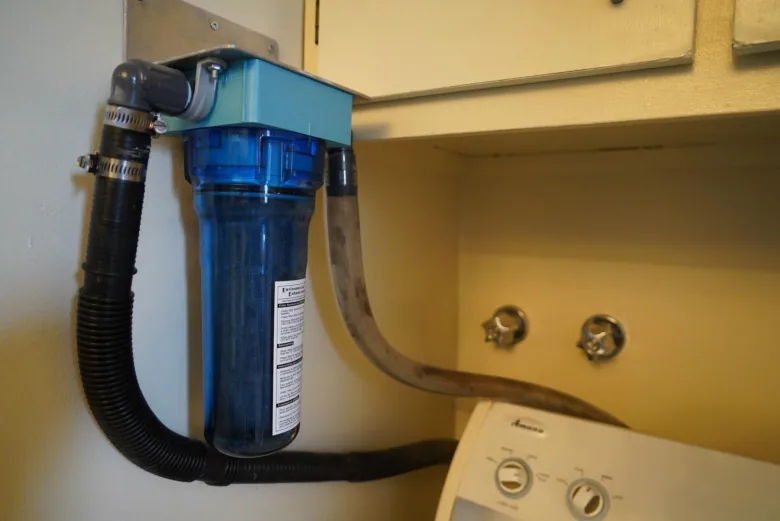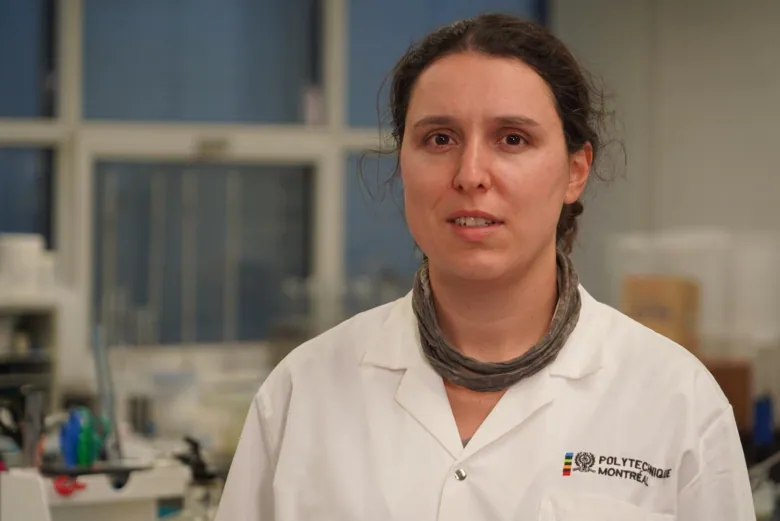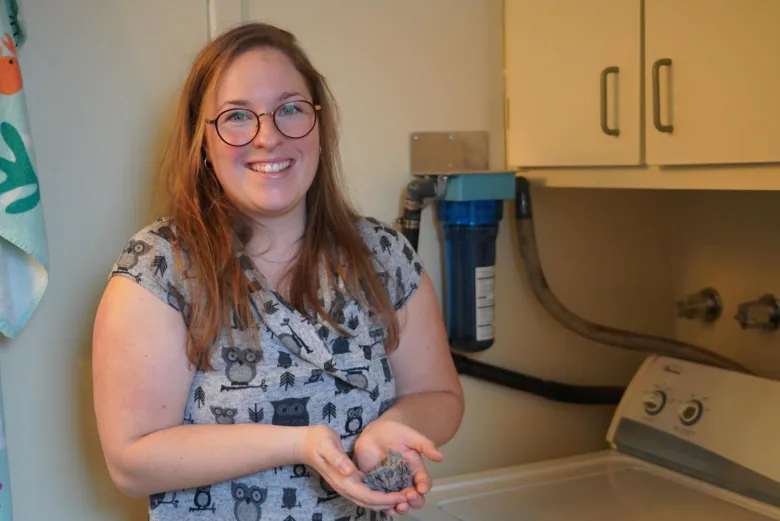Textiles are the largest known source of microplastic pollution in the world’s oceans — making up around 35 percent of microfibres released into the waters.
Every time you wash your clothes, tiny fibres are released into the waste water. These fibres then travel into lakes, oceans and marine organisms.
“All this plastic that is present in the clothes we wear, that we buy, and we wash and then throw away — we think we are really getting rid of it,” said Luisa Novara, project manager in waste management at Groupe de recommandations et d’actions pour un meilleur environnement (GRAME).
“The thing is, we are not getting rid of it and it comes back to us,” she said.
“It enters the food chain and it enters the food we eat, the water we drink, and it comes right back to us and in this invisible form.”
So the Lachine non-profit environmental organization launched a citizen-led research project.
About 30 residents were asked to install a microplastic filtration device onto their washing machines to capture microplastics from the laundry before the water is released into the sewage systems.

Citizen-led research project to study microfibres
Catherine Houbart, the executive director of GRAME, says for six months participants are being asked to collect the lint from the filter, as well as track the intensity of the wash cycle, and the water temperature.
Then, participants will send the dried materials they collect from the filters to a lab at Polytechnique Montréal engineering school.
The non-profit organization has also partnered with a number of municipalities to offer subsidies to residents who install a filter.

The contents of the filters may help scientists learn more about this kind of pollution.
Dominique Claveau-Mallet, a professor in wastewater management at Polytechnique Montréal, collects and studies the materials.
“My job [is to] quantify the mass of plastic grabbed in this type of filtration,” said Claveau-Mallet.
“We want to know how much plastic is released and what’s the composition: size, type and shape,” she said.
Claveau-Mallet says the study of microfibre pollution is relatively new, and while there doesn’t seem to be acute toxicity, there remains work to be done on the long-term effects of microplastics on the environment and food chain.
The goal, she says, is to develop protocols to measure microplastics for the future. As well as help people understand the impact the clothes they buy and wear can have on the environment, and to highlight that there is too much plastic in our lives.

Lobbying to make laundry filters mandatory
The Lachine environmental group is hoping to convince the province to make these filters mandatory in all new laundry machines, in an effort to reduce the amount of microplastics entering our streams, lakes, and oceans.
It also wants to make the filters more affordable and manageable.
Houbart points to France as an example, where as of 2025, all new washing machines must have a filter installed to catch plastic microfibres.

